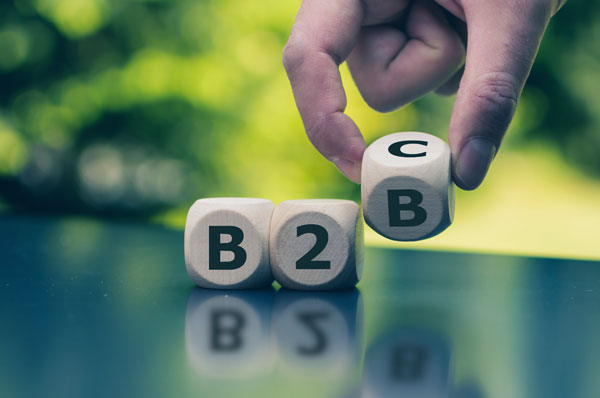Buyers demand the same easy, convenient and efficient buying experience regardless if they’re buying for private needs or in their profession.
Think business-to-consumer (B2C) digital commerce and business-to-business (B2B) sales don’t have much in common? It’s time to think again.
The buying experiences that customers have in B2C are increasingly shaping their expectations for B2B commerce as well. Much of this is down to the growth of digital in B2C commerce.
Think about this - B2B buyers are digitally savvy customers in their own right. In their everyday life, they’re used to shopping through digital channels from eCommerce sites to social media to chatbots. This has shifted their expectations about B2B buying journeys. In fact, evidence suggests that B2B buyers might actually prefer a digital buying experience.
B2B commerce companies need to embrace this and put in place the technology needed to create a future-proof digitally-enabled B2B business.
This is easier than you might think, especially if you work with the right partner. It’s also vital if you want to keep your customers.
Digital Is Changing B2B Buying Journeys
B2B commerce has always been about the human relationship between the buyer and the sales rep. This is still true. But buyers are now coming to those conversations at a later point in the B2B buying journey.











